 The two-headed beast that had blighted the economy throughout the 1970s and 1980s – inflation combined with unemployment – had been tamed, and the business cycle seemed to be a thing of the past.
The two-headed beast that had blighted the economy throughout the 1970s and 1980s – inflation combined with unemployment – had been tamed, and the business cycle seemed to be a thing of the past.
 If corporate money controls our politics, as Bernie Sanders and others have claimed, then how did the Republican Party, the reputed party of business, manage to nominate a candidate whom almost no one in Big Business supports?
If corporate money controls our politics, as Bernie Sanders and others have claimed, then how did the Republican Party, the reputed party of business, manage to nominate a candidate whom almost no one in Big Business supports?
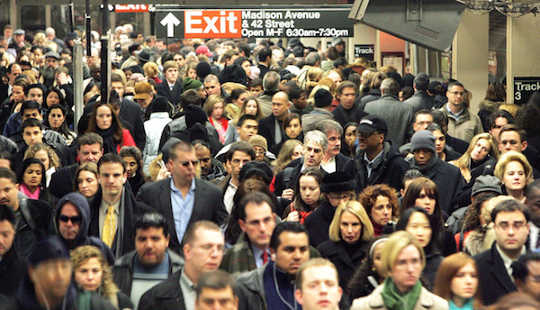 In all parts of the United States, the number of neighborhoods that are home to a mix of black, white, Asian, and Hispanic residents is growing.
In all parts of the United States, the number of neighborhoods that are home to a mix of black, white, Asian, and Hispanic residents is growing.
 If there’s one thing that nearly all economists agree on, it’s that getting rid of trade restrictions is generally good for a country’s economy.
If there’s one thing that nearly all economists agree on, it’s that getting rid of trade restrictions is generally good for a country’s economy.
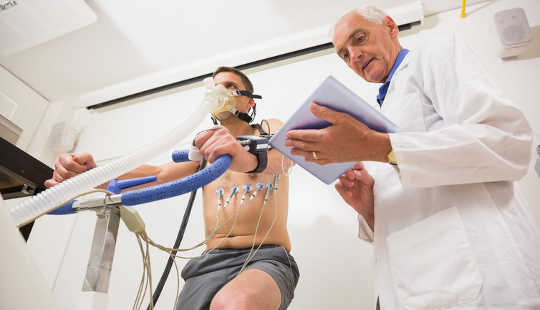 Clinical trials have been the gold standard of scientific testing ever since the Scottish naval surgeon Dr James Lind conducted the first while trying to conquer scurvy in 1747.
Clinical trials have been the gold standard of scientific testing ever since the Scottish naval surgeon Dr James Lind conducted the first while trying to conquer scurvy in 1747.
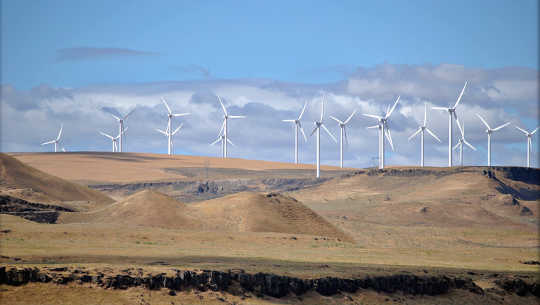 Job growth is a prime topic in the U.S. presidential race, but Donald Trump and Hillary Clinton have very different takes on the role clean energy could play in creating employment.
Job growth is a prime topic in the U.S. presidential race, but Donald Trump and Hillary Clinton have very different takes on the role clean energy could play in creating employment.
 The two largest soda makers in the US use their sponsorships of health organizations to bolster their image, which helps them lobby against public health bills, a new study suggests.
The two largest soda makers in the US use their sponsorships of health organizations to bolster their image, which helps them lobby against public health bills, a new study suggests.
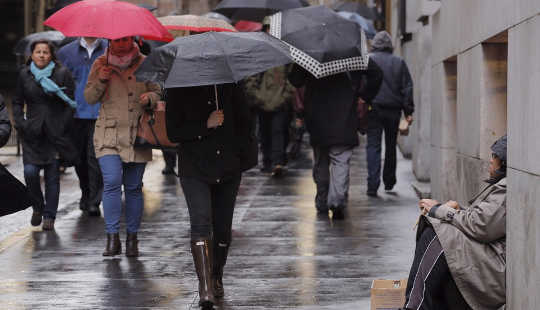 In a recent issue of The Economist, President Barack Obama set out four major economic issues that his successor must tackle
In a recent issue of The Economist, President Barack Obama set out four major economic issues that his successor must tackle
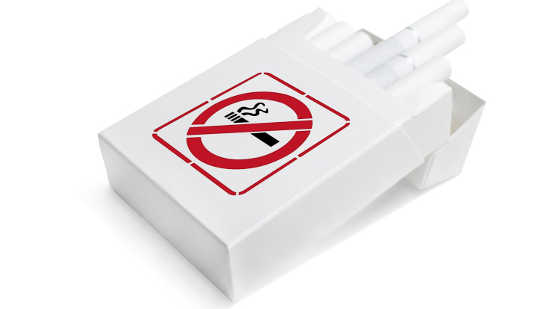 Tobacco companies want to sell you cigarettes – today, tomorrow and for the foreseeable future. Whether you’re at the tobacco counter or out with friends, glitzy cigarette packaging is a really important part of their sales pitch.
Tobacco companies want to sell you cigarettes – today, tomorrow and for the foreseeable future. Whether you’re at the tobacco counter or out with friends, glitzy cigarette packaging is a really important part of their sales pitch.
 New research finds racial disparities in emergency treatment for certain types of pain, specifically backaches and stomachaches.
New research finds racial disparities in emergency treatment for certain types of pain, specifically backaches and stomachaches.
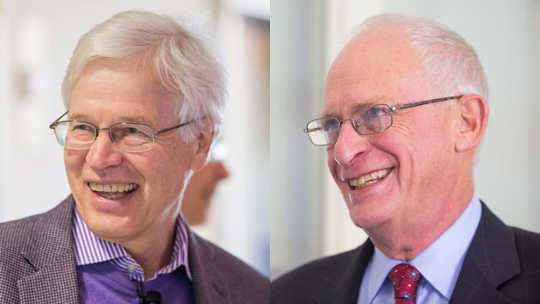 The Nobel Memorial Prize in Economic Science has just been awarded to Oliver Hart and Bengt Holmström for building the foundations of contract theory.
The Nobel Memorial Prize in Economic Science has just been awarded to Oliver Hart and Bengt Holmström for building the foundations of contract theory.
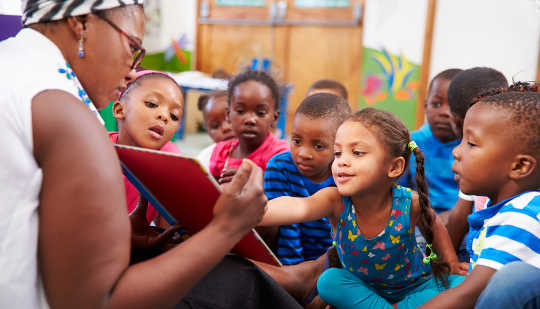 Sophisticated eye-tracking technology shows that preschool teachers “show a tendency to more closely observe black students, and especially boys, when challenging behaviors are expected.”
Sophisticated eye-tracking technology shows that preschool teachers “show a tendency to more closely observe black students, and especially boys, when challenging behaviors are expected.”
 Most of us know the difference a good teacher makes in the life of a child. Many global institutions working to improve access to education, such as the United Nations, the Organization for Economic Cooperation and Development and Education International agree that “teacher quality” is the critical element in whether or not an educational system succeeds.
Most of us know the difference a good teacher makes in the life of a child. Many global institutions working to improve access to education, such as the United Nations, the Organization for Economic Cooperation and Development and Education International agree that “teacher quality” is the critical element in whether or not an educational system succeeds.
 New research may explain why American children resist their parents’ instructions to share.
New research may explain why American children resist their parents’ instructions to share.
 Gender bias can influence how supervisors view a manager’s long-term potential, a new study shows.
Gender bias can influence how supervisors view a manager’s long-term potential, a new study shows.
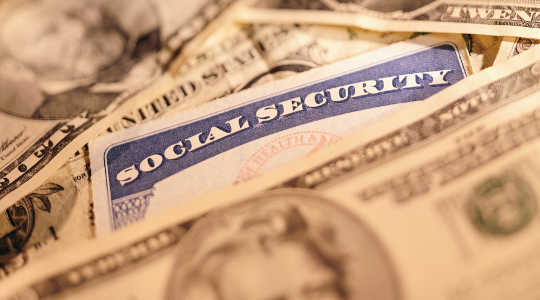 Even the Bank of England’s chief economist, Andy Haldane, admits to “not being able to make the remotest sense of pensions”. So what chance has everybody else? Many people find pensions and saving for retirement confusing and worrying.
Even the Bank of England’s chief economist, Andy Haldane, admits to “not being able to make the remotest sense of pensions”. So what chance has everybody else? Many people find pensions and saving for retirement confusing and worrying.
 It’s that time of year again. Insurance companies that participate in the Affordable Care Act’s state health exchanges are signaling that prices will risedramatically this fall.
It’s that time of year again. Insurance companies that participate in the Affordable Care Act’s state health exchanges are signaling that prices will risedramatically this fall.
 Over the course of four years, at least 5,000 Wells Fargo employees opened more than a million fake bank and credit card accounts on behalf of unwitting customers.
Over the course of four years, at least 5,000 Wells Fargo employees opened more than a million fake bank and credit card accounts on behalf of unwitting customers.
- By Ellen Brown
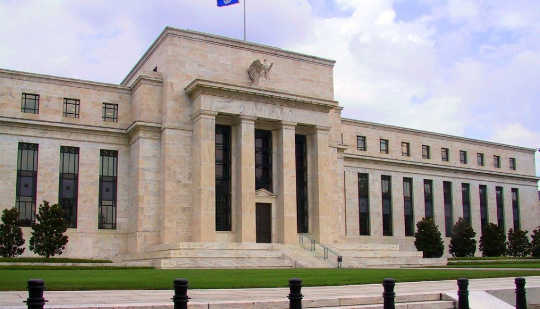
Several central banks, including the Bank of England, the People’s Bank of China, the Bank of Canada and the Federal Reserve, are exploring the concept of issuing their own digital currencies, using the blockchain technology developed for Bitcoin.
 Despite six years of “recovery” from the Great Recession, America’s middle class still struggles financially amid sluggish economic growth and middling job creation.
Despite six years of “recovery” from the Great Recession, America’s middle class still struggles financially amid sluggish economic growth and middling job creation.
- By Robert Reich
 Imagine a little gadget called an i-Everything. You can’t get it yet, but if technology keeps moving as fast as it is now, the i-Everything will be with us before you know it.
Imagine a little gadget called an i-Everything. You can’t get it yet, but if technology keeps moving as fast as it is now, the i-Everything will be with us before you know it.
 Tania Morales de la Cruz, a professor of education at Cuba’s University of Matanzas, recently visited South Africa for the first time.
Tania Morales de la Cruz, a professor of education at Cuba’s University of Matanzas, recently visited South Africa for the first time.
 Donald Trump claims he should be president in part because he has succeeded at creating jobs and businesses.
Donald Trump claims he should be president in part because he has succeeded at creating jobs and businesses.













